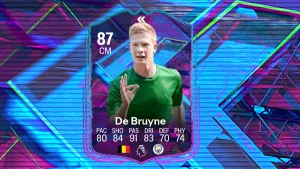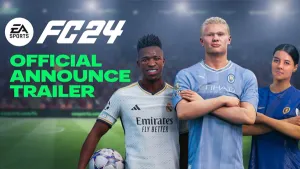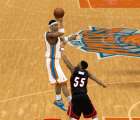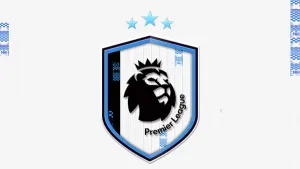NBA 2K12 Developer Insight 10 - Controls
POSTED September 19, 2011
Mike Wang, Sr. Game Designer from 2K Sports, talks about some of the new features and improvements made to the offensive end of the floor in NBA2K12 – primarily in the areas of Ball Handling and Shooting.
Ball Handling
Let’s start off talking about dribbling. Last year, one of our top AI engineers completely re-worked the dribbling system and it was immediately recognized as one of the biggest improvements in the jump between 2K10 and 2K11. We were really happy with how far it came last year, but there were certain things that we didn’t have time to get in… which is typically the case when undergoing huge code re-writes such as this. In a nutshell, the two main goals we wanted to achieve with the dribbler in NBA2K12 were to:
- Refine the movement, in terms of look and feel
- Make good ball handlers feel more “explosive”
The first area that needed to be addressed was speed. Feedback came through loud and clear from the forums that people wanted a proper walk dribble instead of the “hunchback” dribble that we had last year.
To be honest, I didn’t think it was that big a deal in the scope of things, but decided to spend some time refining it and capturing new walk dribble animations to appease the fans. After playing with the changes, I was amazed at how much I actually missed being able to walk up and down the court. It’s a small change, but goes a long way towards making the overall dribble model feel more complete.
On the other side of the spectrum, we felt that it was important to convey a better sense of speed, especially during fast breaks. This is where the blowout dribble comes in. Many of you have already seen this feature in various trailers and videos that we’ve released. Basically, if you press and hold Turbo while in the backcourt, the dribbler will throw the ball out ahead and sprint to catch up to it. It’s a great tool for gaining an advantage in transition and also makes our fast breaks feel more alive. The ball is essentially loose during the blowout though, so make sure you have space in front of you before trying it or you’ll end up throwing the ball off someone’s foot.
Size ups were another area that saw a nice improvement this year. In NBA2K11, size up dribbles were, essentially, short in-place dribble sequences that the ball handler could use to size up his check, in an effort to get him to shift one way or the other. Unfortunately, once the user kicked off the sequence, they pretty much had to sit there and watch a movie play out with little control over the outcome.
In NBA2K12, we wanted the user to feel more connected to the system so we broke the size ups up into much shorter sequences, and in most cases just one dribble. So you can now manually rock the ball from side to side by holding the Dribble/Shot modifier and moving the left thumbstick left, right, left, right, etc. Moving the left stick away from the hoop will cause your guy to quickly retreat, toward the ball hand will have him do a quick inside out dribble, toward the offhand will perform a crossover, and toward the hoop will be a more aggressive attacking type dribble. It’s a bit difficult to describe but when you get your hands on it, the difference is night and day. Instead of watching a sequence play out by itself, the user now has the ability to chain together ankle-breaking combos however he wants.
We tightened up a number of other aspects of dribbling: cuts, stops, etc. Collectively, these changes have made a significant improvement to the overall feel that we think you guys will appreciate. But the last thing I want to mention about the dribbler is this idea of explosiveness. The dribbler in NBA2K11 was smooth… almost too smooth. One of the things that separate a great ball handler from a poor one in the NBA, is the ability to change speeds on a dime. So when a Derrick Rose or Chris Paul takes you off the dribble with their first step, they don’t slowly accelerate… they explode off the bounce with a blur. In NBA2K12, we added a number of new dribble moves and launches that bring this aspect of real life dribbling into our game. For example, if you perform a size up, hesitation, or stepback move, you can quickly move the left stick in one of four directions to queue up an explosive first step:
- Toward the ball hand = Go move launch
- Toward the off hand, but more toward the basket = Crossover launch
- Toward the off hand, directly across the body = Behind the Back launch
- Toward the off hand, but more away from the basket = Spin launch
The stop and go game is deadly and can easily leave a flat-footed defender in the dust. One of my favorite things to do is to set up my defender with a few size up moves, explode to the basket with a behind the back or spin launch, follow that up with a stepback move to freeze the retreating defender, then throw another launch at him or pull up for a jumper depending on how much space I’ve created.
Shooting
As many of you know, one of the things I’m most passionate about when it comes to my virtual hoops is having a strong shot arsenal. Last year, we took some good steps with the addition of new shot types such as stepback and spin jumpers as well as my personal favorite, the “flick flick.” But we really wanted to make huge strides in taking shooting to the next level in NBA2K12.
To accomplish that, we added a new, extremely talented engineer to our AI team. He hit the ground running the day he started and the two of us spent a better part of the dev cycle iterating on new ideas and building the most robust shooting system to date. I could probably write a novel on all of the upgrades that we made this year, but I’ll try to just hit the highlights in this Insight.
The first thing we set out to do was add some new tech. I’ve long been a believer that in order to continue to grow Signature Style, which is one of the cornerstones of our game, we needed to explore a more dynamic shot engine. Otherwise, we’re going to hit a ceiling, run out of animation memory, and not be able to offer new shot content.
Enter Shot Compositing. The idea behind this technology is to blend multiple shot animations together in order to “build” a cohesive signature shot. Think of it as a flip book, remember the ones you read as a kid where you’d mix and match the head, torso, and legs of different characters to build your own? Shot Compositing works in a similar way. So if you go into Create a Player, you can assign a specific shooting form (upper body) to a player, and then mix and match different shot bases (lower body) to create the shot you want.
I am sure many of you saw the screen of Ronnie's My Player last week with his extremely funky created shot. This is what I am referring to in terms of Shot Compositing.
Shot compositing gave us the ability to essentially create a limitless number of sig shots, while still allowing for tons of new shot types without bloating our memory footprint. The tech is very cool and I think users will love having the ability to create unique jumpers. Plus, it yields consistency when you see a guy like Shawn Marion shooting all his shots with his trademark flick or Dirk always releasing with his high patented follow through.
The next big undertaking was the Change Shot code. Frankly, this feature was a mess and hadn’t been touched for several years. This year, the code was completely re-written and I’m proud to say that it’s a feature that’s finally worth talking about. You can now change your shot from any layup or dunk without it looking robotic, and the variation in shot finishes is at least 30 times more than it was last year. Now when you switch hands in mid-air or change from a dunk to a layup, it’s difficult to tell if it’s raw mocap or two animations blending together.
The system can also predict where the ball will release, whereas before it just played an animation blindly which led to a lot of shots going into/behind the backboard. Now you can use the feature with confidence that you’re not putting yourself into a worse shot than the one you started with. In fact, the feature is so strong that we started using it as one of our primary shot collision resolution tools. What does that mean? Well, in the past we relied heavily on two player animations to show contact between a shooter and a defender. Those animations looked nice but they felt horrible. You would get pulled into directions you didn’t want and defenders would get put into block animations without ever hitting a button. Not to mention you’d see the same outcomes over and over again.
For NBA2K12, we create these collisions on the fly using the physics of the two players. So if a shooter takes off and ends up hitting a defender in the air, we send him into the Change Shot system and play a shot that matches the shooter’s in air physics but shows him taking a hit in the process. It feels right, teaches the user not to force shots, and also provides a wide variety of outcomes that can play out when you drive into traffic. A lot of people have said that it’s the most impactful difference between last year and this year in making the user feel more in control on both offense and defense. And I’d probably agree.
Another major improvement is in the transitional blends going into various shots. This was something we attempted to improve last year but we really didn’t get as far as I’d hoped.
Shot gathers into pull-up jumpers are so seamless this year that it’s difficult to tell where the dribble animations end and where the shots begin. It’s one of my favorite upgrades and really makes shooting look and feel fantastic.
Of course, we’ve added a number of new shots to the user’s arsenal, but one that I want to call out is the escape dribble pull-up. From triple threat or stand dribble, if you hold LT on 360 (L2 on PS3) and move the Shot Stick in any direction, you can pull off an explosive escape dribble that directly transitions into a pull-up jumper. The nice thing about these shots is that you can break out of them. So after kicking one off, if the defense reads you properly and jumps in your way, you can retreat out or change directions while maintaining your dribble. There’s a risk/reward to it though because you can end up losing the ball if you collide with a defender. So be careful when and where you choose to use these shots.
Last year, we introduced something that I called the “flick flick” shot. Basically, these are up and under type shots in which you start a shot, pump fake, and then pivot out for a step through jumper or layup. This feature makes its return in NBA2K12 but in a much broader capacity. Now, you can flick flick out of any fake-able shot with no modifiers required. For example, in the post, quickly move the Shot Stick from side to side to start a shimmy shot, quickly center the stick while the player’s doing his shimmy before he goes into his shooting motion, then just as he starts his pump fake, move the Shot Stick again and you’ll end up with a shimmy fake to step through layup.
It might sound a bit complex but it quickly becomes second nature once you get used to the system. You can even chain several flick flicks together like Hakeem’s Dream Shake, although excessive faking will often lead to a traveling violation. One way I like to use the flick flicks is to drive in, start a hop step layup by holding LT and moving the Shot Stick left or right, then faking into an up and under layup if the defense commits on my initial hop. The shots you can invent with the flick flicks are really impressive and I’m excited to see the highlights people put together using the feature.
I think that’s one of the amazing things about basketball. No two scores are ever alike in real life and I think with NBA2K12, we’re starting to get to that point where the user can read and react to the defense and pull off amazing moves/shots on the fly by chaining from one offensive system to another. All the great scorers can create something out of nothing and now you can do that in our game as well.
I know I’ve concentrated a lot on the offensive aspects of our shot systems, but don’t worry, we didn’t neglect shot defense. Every shot you can perform in NBA2K12 can be countered by timely defense. From strips to contests to blocks, every shot has multiple windows of vulnerability that also take into account the shooter’s ability with a given shot type as well as the defender’s shot defense ability. For example, if you properly read the shooter and hit the Steal button at the right time while he’s driving toward you, you can force him to fumble the ball, go into a forced shot animation, or sometimes even get outright stripped.
From a team strategy standpoint, we went to great lengths to re-balance scoring to properly match the real NBA’s shot percentages. You’ll be amazed at how accurate your stats will turn out if you play in Simulation Game Style at 12 minutes quarters. Your box scores will look like something straight out of NBA.com. We’ve also added a new feature that I encourage everyone to turn on. If you navigate to Options >> My NBA >> Presentation and turn the option titled “Shot Quality Feedback” to “All Shots,” a letter grade will appear at the top of the screen representing the quality of the shot taken. It grades the shot based on all the factors that we use to determine the final shot percentage of that shot, things like: release timing, defensive impact, range, shooter’s skill, etc. The goal was to teach users the importance of taking high quality shots throughout the course of the game in order to be successful. It’s also a great feedback mechanism to gauge your own shot defense against your opponent.
Another area of focus for us this year was the AI’s (artificial intelligence) usage of shots. In the past, we admittedly haven’t spent enough time adequately equipping the AI with all the same weapons that are available to the user. They would often play a shot randomly, not really looking at the difference between a straight up jumper or one that would create space. This is greatly improved in NBA2K12. The AI is much better at recognizing driving opportunities and, based on the particular player’s tendencies, will now utilize the full suite of shots available in the game.
There have been a lot of instances watching different people play the AI this year in which I felt the AI played smarter, and took better shots than the human. There’s nothing better than watching an AI ball handler take me off the drive, start a spin jumper, pump fake to get me into the air, and then step through for an uncontested floater. It’s a thing of beauty and I don’t even feel bad when I get schooled.
The last thing I want to mention regarding shooting, is the new free throw mechanic. At first glance, it looks and feels largely the same as last year. Pull the Shot Stick down to begin the free throw, center the stick as the player releases the shot. Early in the year, we actually experimented with a few different free throw systems like controlling your power and arc, but decided in the end that simpler was better.
So what’s new about the free throw system? It’s been completely re-tuned to accurately model real life percentages. You still need to learn the timing of your player’s sig free throw, but the timing window and margin for error directly correlate to how good a free throw shooter you have, whereas before they were somewhat identical for all players. I know a lot of people mastered Shaq and Dwight Howard’s free throw animations because they had “tells” that cued the user when to release the stick. So there was no purpose in going to the Hack-A-Shaq strategy against certain users because Shaq would knock down 80% of his foul shots.
This year, mastering them will still yield realistic percentages because the slightest bit of error will greatly reduce your chances of making the shot. On the flip side, you almost have to go out of your way to miss free throws with great free throw shooters like Steve Nash. We also display the percentage of the free throw make/miss chance to give you feedback on how well you timed your release based on your shooter’s skill.








